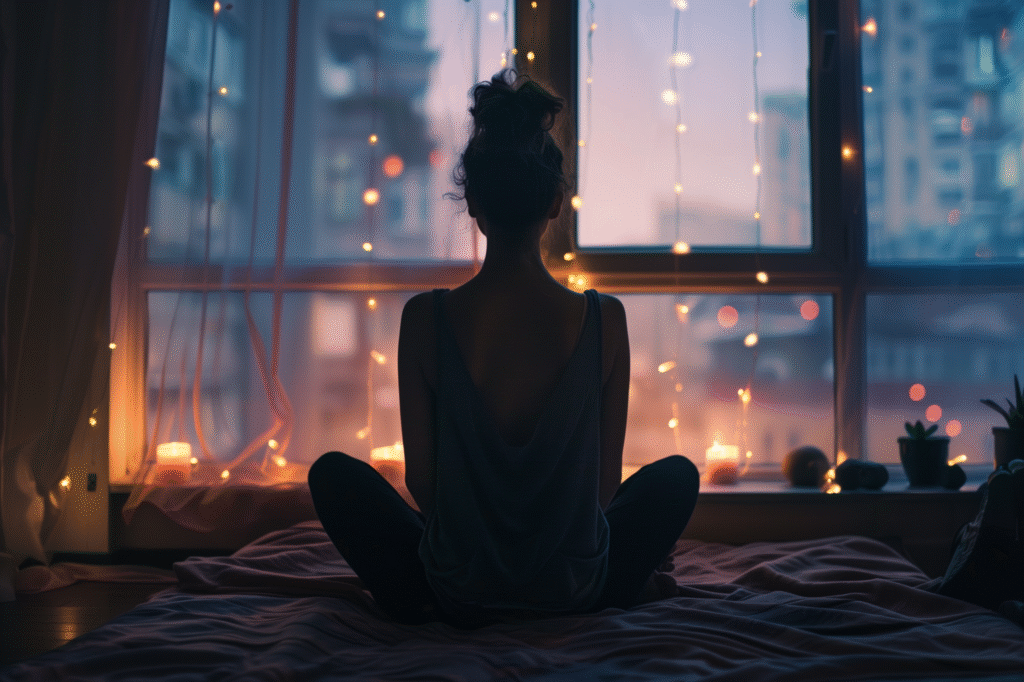
Late-Night TV Binging: Balancing Bedtime Routines
A healthy bedtime routine for adults is as important as a healthy diet. Therefore, next time you reach for the remote, remember that it's not doing your health any favors.

It's midnight, and you promise yourself just one more episode. Three hours later, you're still at it. According to a recent survey, over 70% of adults in the US binge on late-night TV at least once weekly. As innocent as it might feel, this nightly routine can disrupt your sleep and overall health.
Late-night TV binging is not just a guilty pleasure but also a sleep saboteur. The blue light on the screens tricks your brain into thinking it is still daytime, decreasing your ability to fall asleep. Additionally, the exciting content keeps your mind alert instead of allowing it to go to rest. But there's hope: Through a new, more balanced bedtime routine, better sleep and health can be yours.
We will look at some downsides of late-night TV, the benefits of a good adult bedtime routine, and some practical steps in developing better habits. Without further ado, let's get into it.
Why Late-Night TV Binging Is a Problem?
We have all been there. One more episode turns into an all-night marathon, and before you know it, the sun is rising.
Though you may not have noticed it earlier, this might have affected your sleep a lot. Bright screens and engaging content can cause distractions in the typical natural sleep pattern. As discussed, blue light from screens makes it hard to fall asleep. And the excitement from your best-loved series can keep your mind buzzing, even long after you have switched off the TV. But it does not end here.
This can lead to high-stress levels, weight gain, and a person being more prone to chronic conditions such as heart disease in the long run if sleep continues to be wrong all the time. It can also take its toll on your mental health, being linked to anxiety, depression, and reduced cognitive function.
So, while late-night TV might seem like a fun way to relax after a hard day, it's not doing your health any favors.
The Benefits of a Good Bedtime Routine for Adults
Just switching from late-night TV to a sound bedtime routine can do wonders for your sleep and subsequent overall health.
Going to bed regularly helps the body get ready for downtime, and it is so much easier to retire and wake up in the mornings with freshness. You can relax your body by reading or meditating so your mind will be informed that it is time to rest.
From the physical aspect, an appropriate bedtime routine can help boost your immune system and keep a healthy weight. With good rest, your body can regulate hunger hormones, reduce late-night cravings, and make healthier daily food choices.
Good sleep decreases stress and anxiety, improving mood and cognitive function. You will be more focused, productive, and in a good mood.
Be sure to prioritize a great sleep routine at bedtime. That way, you're setting yourself up for success in many areas of your life. The benefits are clear.
Steps to Develop a Healthy Bedtime Routine
Developing a healthy bedtime routine for adults is an easy task. However, here are some simple steps to help you get started
Establish a Consistent Sleep Schedule
First of all, the most important part of a healthy bedtime routine for adults is a consistent sleep schedule. You should make sure you go to bed early and wake up early, which helps manage the body’s internal clocks.
This helps you to fall asleep easily and wake up without interference despite changing from weekdays to the weekend.
If you struggle with staying consistent, try setting a nightly alarm to remind you when it's time to take the day off.
Create a Relaxing Pre-Sleep Ritual
Reading, taking a light, warm bath, and deep breathing exercises are all effective techniques for induced relaxation before bed. However, do not engage in activities that excite the body, such as exercising or using bright gadgets.
Limit Screen Time Before Bed
You should put aside everything with a screen for at least an hour before bed. Avoiding screens an hour before sleep can help in improving the quality of sleep.
The bright light from screen LED exposures hampers your ability to sleep at night. If you really need to work on your devices, turn on the blue light protective mode or the night mode.
Optimize Your Sleep Environment
You should make your bedroom a comfortable zone for sleeping. Find a very good mattress and cushions, maintain a good temperature in the bedroom, and reduce noise and light sources to a minimum. Blackout curtains and white noise machines may be helpful resources.
Mind Your Diet and Exercise
Consuming heavy meals, caffeine, or vigorous exercise a few hours before bedtime is also not advisable, as these will leave you awake. Try to consume the last meal several hours before bedtime and avoid stimulants before going to bed. Physical activity will help you have better sleep, but ensure that you do it a few hours before going to sleep.
Sleep Tracking to Assess Improvement
Sleep tracking tools such as Pillow are useful since they assist in identifying the changes that need to be made. By looking at your sleep data, you can understand what is good for you and see your progress over time.
Alternatives to Late-Night TV Binging
Instead of reaching for the remote, you can try these relaxing alternatives to boost not only your sleep but your overall health.
For starters, you can engage in relaxing hobbies. These practices can help your body relax without the risk of screen exposure. Some common relaxing hobbies are reading, journaling, or puzzle-solving.
We often do not adequately acknowledge the role of socializing and bonding in our lives. But a good conversation with a friend or a loved one can be a great way to relax. Therefore, try spending more quality time with family or friends to have a better and more comfortable sleep experience.
You can also try calming music or a soothing podcast to help ease you into sleep mode.
These activities can help you transition to a more restful evening routine without the negative effects of TV.

Written by
Dr Aqsa
As a Medical Doctor, Dr Aqsa, uses her knowledge to craft complex medical information that is understandable to the general public. For years, she has tried to improve health literacy and empower readers with valuable health knowledge through her articles, blog posts, and educational materials.
Download Pillow
Get help
Press & News
Legal
Connect
X (Twitter)
Company
Copyright © Neybox Digital Ltd.



